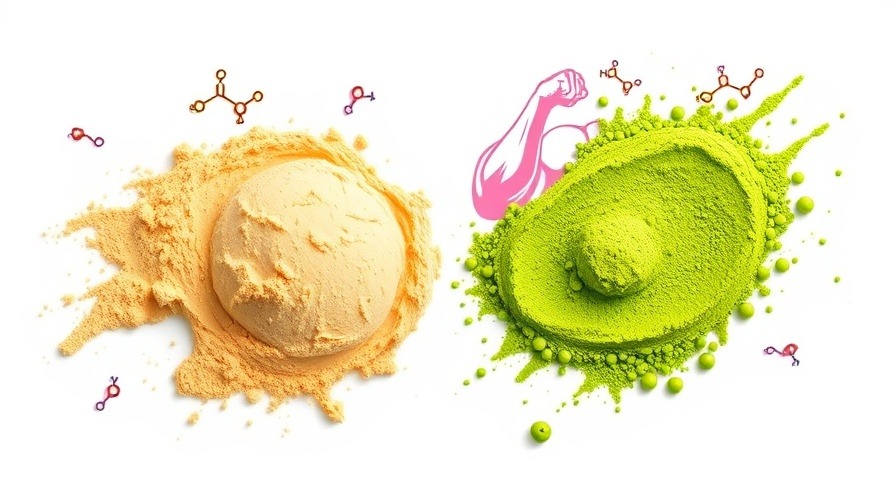
Unveiling Turmeric: The Golden Spice of Wellness
Turmeric, perhaps better known for its vibrant color and potential health benefits, has piqued the curiosity of health-conscious adults worldwide. This spice, primarily used in curries and other dishes, contains curcumin, a compound linked to numerous health advantages including anti-inflammatory properties and enhanced brain function. As two medical professionals, Dr. Paul Zalzo and Dr. Brad, explore in their engaging video, understanding how turmeric fits into our everyday health regimen is vital.
In the video Should You Take Turmeric Every Day? Here’s What Doctors Say, the discussion dives into the health benefits of turmeric, exploring key insights that sparked deeper analysis on our end.
The Science Behind Curcumin
Curcumin is the primary active ingredient in turmeric, responsible for its therapeutic attributes. It has been utilized in traditional Chinese and Ayurvedic medicine for thousands of years, demonstrating its proven history of use. Recent studies have shown that curcumin assists in reducing levels of inflammation and oxidative stress, which are critical in chronic diseases like heart conditions and arthritis.
Turmeric for Joint Health: A Natural Alternative
One compelling area of research discussed by the doctors is turmeric's role in joint health. For those suffering from arthritis, curcumin has been compared to ibuprofen in studies, revealing comparable efficacy in reducing pain with fewer side effects. This finding is particularly pertinent for those looking for natural solutions to manage chronic pain.
How to Maximize Turmeric’s Benefits
While turmeric can be beneficial, its bioavailability is a common concern. Without the addition of black pepper—a potent enhancer of curcumin absorption—most individuals might not receive the full benefits from dietary turmeric alone. Including black pepper in meals can boost curcumin’s absorption by nearly 20 times, enabling the body to gain maximum health advantages.
Dosage and Safety Considerations
Determining the appropriate dosage of curcumin can be a bit tricky. Most studies suggest a range of 500 mg to 2,000 mg, but fresh turmeric may only yield about 200-400 mg of curcumin per serving. Therefore, supplements are often a practical option for those seeking significant health effects. However, it’s essential to consult with healthcare providers if you are taking blood thinners or have gallbladder issues, as curcumin can affect these conditions.
Why It’s Time to Reconsider Turmeric
If you’ve discarded your turmeric after previous health recommendations, it might be time to rethink that decision. As Dr. Zalzo emphasizes, the medical landscape is continually evolving, and what may have once been a neutral stance on turmeric has now shifted towards a more favorable outlook. The benefits are becoming increasingly supported by emerging research, indicating that for many, it’s worth incorporating into daily life.
Join the Conversation!
In their video, Should You Take Turmeric Every Day? Here’s What Doctors Say, Dr. Zalzo and Dr. Brad shed light on vital considerations regarding turmeric intake. They invite viewers to share their experiences with turmeric, including whether it has made a difference in their health. Engaging with your doctors about supplements like turmeric can lead to personalized insights that enhance your well-being.
 Add Row
Add Row  Add
Add 




 Add Row
Add Row  Add
Add 

Write A Comment